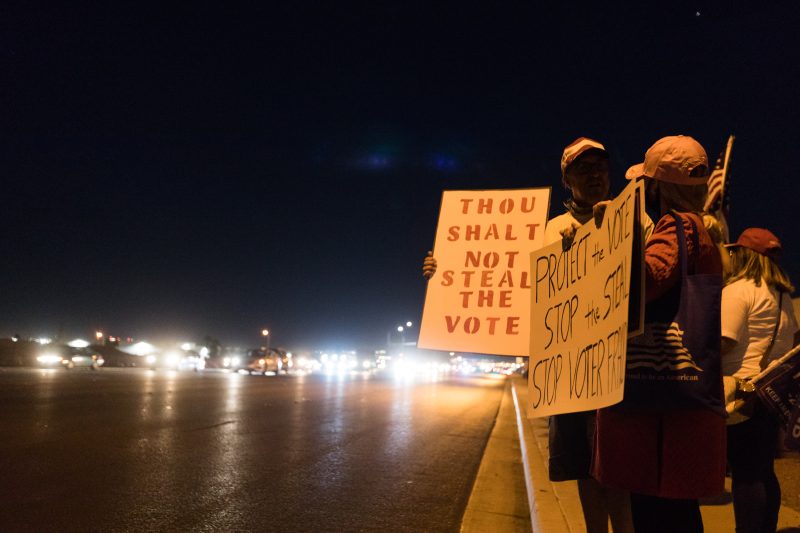Sidney Powell has tacitly conceded that she didn’t have the proof of a stolen election that she claimed. Former Trump campaign legal adviser Jenna Ellis has now explicitly acknowledged that.
And it turns out the GOP base as a whole is increasingly admitting it to themselves — that its continued belief in a stolen election is largely just about vibes.
A new CNN poll shows the false belief that President Biden’s 2020 win over Donald Trump was illegitimate remains strong among Republicans and GOP-leaning voters; 63 percent continue to say that, while 37 percent acknowledge Biden’s legitimate victory.
But as this question has been asked over time, something notable has happened: These voters have increasingly acknowledged there is no “solid evidence” for their belief.
Shortly after such beliefs led to the Jan. 6, 2021, insurrection, 71 percent of Republican-leaning voters told CNN’s pollsters that Biden’s win was illegitimate — slightly higher than today.
But at the time, three-quarters of them also said they believed there was “solid evidence” for that. Today, only about half say so, while fully 48 percent of 2020 election deniers acknowledge their belief in a stolen election is “suspicion only.”
All told, back in January 2021, a majority of Republican-leaning voters (54 percent) said they believed that the election was stolen and that there was solid evidence. Today, that’s fallen to just 33 percent.
It’s not the only indication that election denial, while still strong in the GOP base, has waned.
The same CNN poll also shows the share of Republicans and Republican-leaning independents who say Biden’s win was legitimate rising slowly but steadily, from 22 percent in January 2021, to 30 percent a year ago, to 37 percent today.
Similarly, despite the GOP’s disappointing 2022 election results and the claims of malfeasance from candidates such as Kari Lake in Arizona, polls show fewer GOP-leaning voters believed 2022 races were illegitimate than believed that of 2020. A post-election Quinnipiac poll showed 3 in 10 believed the 2022 results were illegitimate — compared with 7 in 10 who said so in a Quinnipiac poll shortly after the 2020 election. And Marquette University’s law school asked similar questions about both elections in a poll released in December; while 36 percent of Republicans said they were “not at all confident” in the 2020 election results, just 16 percent said the same of 2022.
In a way, of course, election denial has always truly been about vibes. Trump-aligned election lawsuits consistently failed when subjected to scrutiny. The lawyers behind them often admitted that they didn’t have proof of the widespread voter fraud that Trump claimed — and often that they weren’t even alleging fraud. They instead focused on supposed “irregularities” and process issues. Right-wing media outlets repeatedly backed down when facing legal pressure, which has now culminated in Fox News facing legal jeopardy in a defamation lawsuit brought by Dominion Voting Systems. We’ve learned recently in that case that many at Fox News privately acknowledged the evidence was bunk, even as they decided airing such claims credulously was best for business.
But it’s still significant that Republican election deniers now increasingly admit their side hasn’t produced the goods. There’s seemingly been enough manufactured smoke out there for them to convince themselves they can pinpoint where the fire was. And it’s no fun to admit to yourself — or a pollster — that your belief isn’t actually based upon anything tangible.
Yet that’s where we’ve wound up: Two-thirds of GOP-leaning voters admit there’s no “solid evidence” that the 2020 election was stolen, but nearly as many still believe it was.








